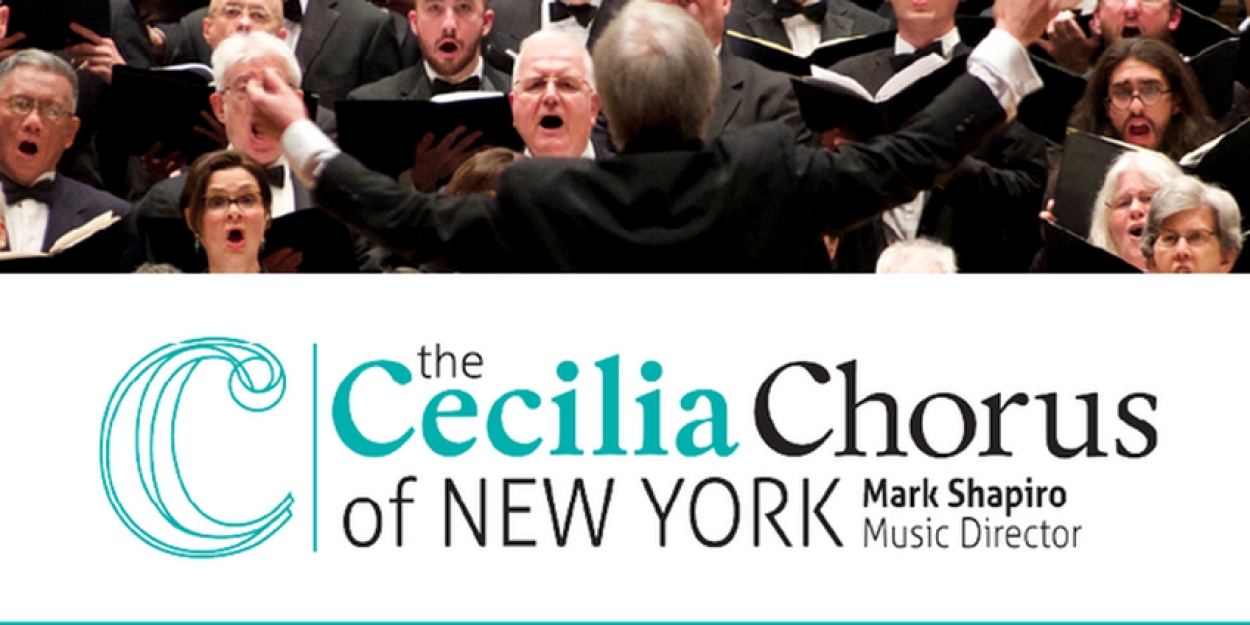The Cecilia Chorus of New York to Perform CHICHESTER PSALMS and Excerpts From MASS & More
The performance will take place on December 7 at Carnegie Hall.

Saturday, December 7 at 8:00 PM, The Cecilia Chorus of New York, Mark Shapiro, Music Director, will present Leonard Bernstein's Chichester Psalms and concert excerpts from his Mass, along with J.S. Bach's Christmas Cantata, BWV 63 at Carnegie Hall's Stern Auditorium/Perelman Stage, 57th Street & 7th Avenue in Manhattan. Soloists will be Jennifer Zetlan, soprano, Wei En Chan, countertenor (Carnegie Hall debut), Patrick Bessenbacher, tenor, and Kyle Oliver, baritone.
The Cecilia Chorus of New York celebrates the season with music by Leonard Bernstein and J.S. Bach. A famous advocate for world peace, Bernstein crafted a musical plea for unity in divided times with his by turns rousing and serene Chichester Psalms. His Mass (with additional lyrics by Tony Award-winner Stephen Schwartz) pulls classical, rock, and pop idioms into exhilarating musical synthesis. Rounding out the evening is Bach's only Christmas cantata to use four trumpets, in its' first-ever Carnegie Hall performance.
Though Chichester Psalms premiered in 1965, almost 60 years ago, its music and message remain bracingly timely and fresh. Bernstein fashioned the three-movement Old Testament libretto from the Psalms of King David, choosing a sonorous orchestration of brass, strings, percussion and, in resonant homage to King David, harps.
The music of Chichester Psalms gives prominence to the numerologically significant number 7, through salient melodic, motivic and harmonic use of the interval of a seventh as well as a rousing 7/4 meter in the first movement. The second movement tensely juxtaposes Psalms 23 ("The Lord is my shepherd") and 2 ("Why do the nations rage"), with the composer giving the chilling instruction that sopranos and altos are to sing the pastoral text as though "blissfully unaware of the threat" of the rageful one. After a thorny, contemplative introduction, the third movement luxuriates in the caress of a lapping 10/4 meter. The cantata's ennobling finale harks back to J.S. Bach, with a luminously harmonized chorale recapitulating its opening fanfare, hushed and in longer note values (augmentation).
Commissioned by Jackie Kennedy in 1966 to inaugurate the John F. Kennedy Center for the Arts, Bernstein's Mass was instantly controversial, with then-President Richard Nixon declining to attend lest he incur embarrassment for appearing at the wrong place at the wrong time. Some critics and clerics decried the work's fusion of elements from classical, gospel, jazz, musical theater, blues, folk and rock - alert listeners will note the electric guitar and drum kit - as impertinent; and condemned its libretto, which integrated English and Latin liturgy, Hebrew prayer, and words by Stephen Schwartz as well as Bernstein himself, as blasphemous. Others immediately recognized the work's inventiveness, vastness of scope, and theatricality, as well as the profound and universal humanity of its evocation of a crisis of faith.
Dating from about 1715, cantata no. 63 is J.S. Bach's first cantata for the Christmas holiday, resplendently scored for four (four!) trumpets, three oboes, strings and continuo. In the opening chorus, listen for the rays of sunshine in the choral melismas on the word "Strahl". Later, in the finale, listen for the sky's ominous darkening as Satan makes a menacing appearance. Then the sun comes out again.

Videos
